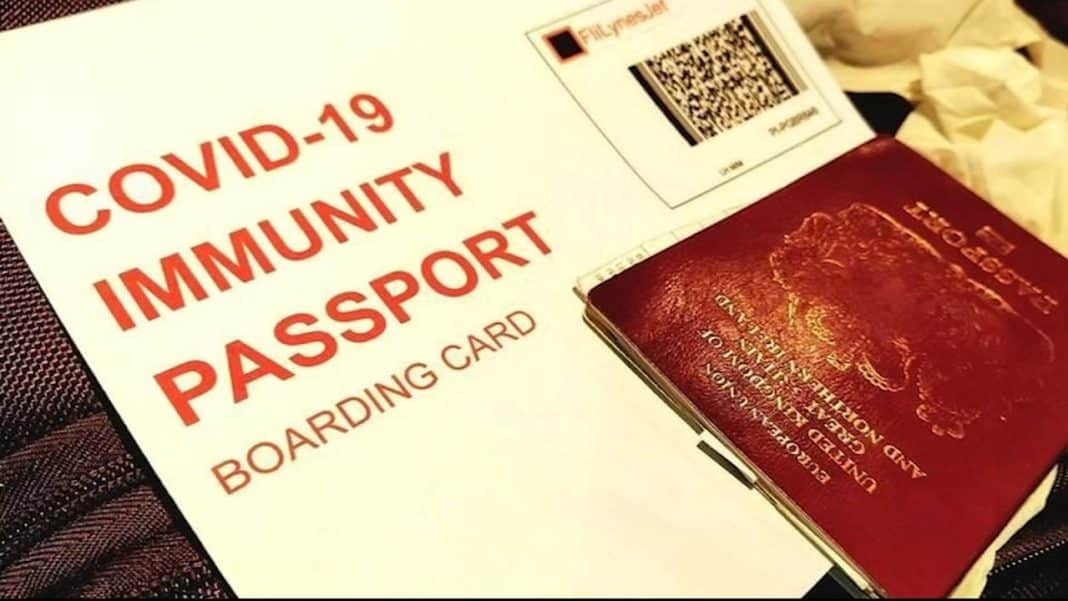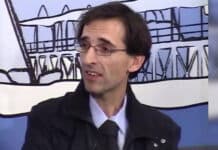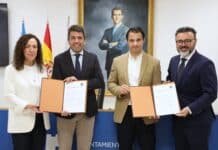The Generalitat will decide this week whether to extend the covid passport and current restrictions.
To extend the validity of the covid passport beyond January 31, however, it will require authority from the Superior Court of Justice of the Valencian Community.
The measure, which came into play in December and extended beyond the Christmas festive period, has not generated a direct impact on infections. The omicron virus wave has continued to advance.
Related: Official: EU to Introduce New Individual-Based Travel Restrictions From 1 February
However, Ximo Puig said, “The covid passport has had a positive effect,” with 81% of the total population of the region immunized against Covid-19.
It would appear that the Valencian Government does not plan to eliminate the requirement of the certificate to access hotel and leisure establishments.
The Interdepartmental Table is set to meet with the regional president saying: “We are far from normal – we are still in the midst of a pandemic with a large number of infections every day.”
The covid passport coexists with other regulations adopted on October 9, under the commitment of a safe opening, and are not planned to be modified.
Currently the maximum of ten people per table in bars and restaurants and the prohibition of smoking on terraces are in place.
The Valencian Community remained, as of January 20, at a very high risk of spreading the coronavirus, with an incidence of 3,278 cases per hundred thousand inhabitants.
The occupancy of hospital beds has remained stable despite the plethora of positives that has been recorded, with over 26,000 on January 20 standing at 15.8%, while in ICUs that percentage rose to 25.4 % with 1,744 people admitted, 190 in intensive care.
In Valencia, the Covid-19 trail shows a decreasing trend after three weeks with lower records, and predicts the end of the sixth wave in two weeks.
The World Health Organisation (WHO) has confirmed with data the worst of the predictions of Valencian surgeon Dr. Pedro Cavadas, about coronavirus vaccines.
Cavadas was reportedly labelled as being an alarmist and a spreader of hoaxes for warning in the first instance of the serious risks of the coronavirus and later for his forecasts on the deadlines and effects of the Covid-19 vaccines.
However the director general of the World Health Organisation (WHO), Tedros Adhanom Ghebreyesus, has asked rich countries for a new moratorium to delay the inoculation of the third doses of the vaccine until the end of the year.
The goal is for vials to reach poor states and to reach, in the best of cases, 14 percent of the world’s population vaccinated by the end of December.
Nine out of ten citizens have not received a single dose of the coronavirus vaccine, a statistic that confirms the theses by Pedro Cavadas regarding the two speeds of the vaccination process.
“The poor parts of the world will be vaccinated much later and that will cause the pandemic to follow an asymmetric evolution throughout the world,” he said.
He has had to interrupt his humanitarian work in Africa as a result of the effects of the coronavirus in countries like Tanzania, having warned that the Covid-19 pandemic will persist for several years because of this asymmetry between rich and poor states.
According to the latest data from the WHO, more than 5.5 billion doses of coronavirus vaccines have already been administered globally.
80% have been injected in high- and upper-middle-income countries. Poor countries have only been able to implement 1.4% vaccination coverage among their population.















